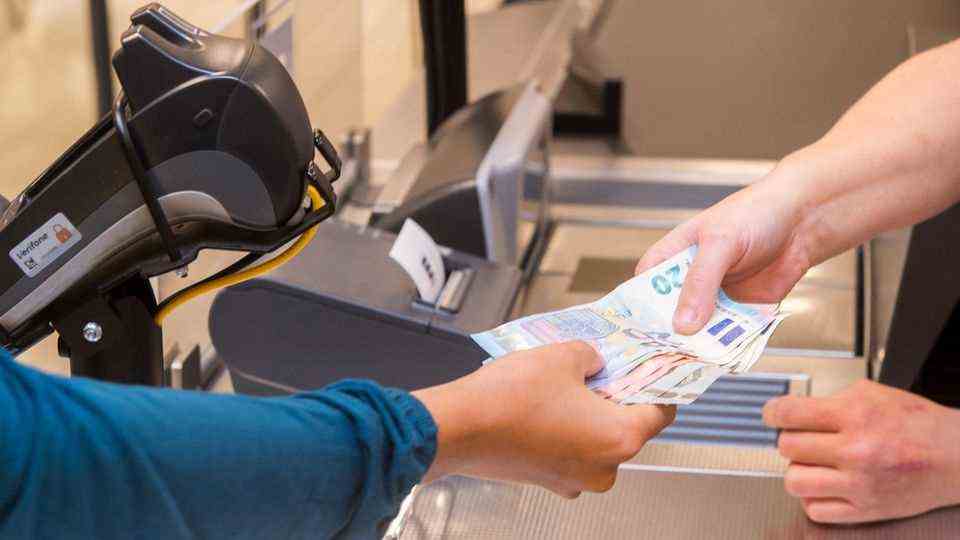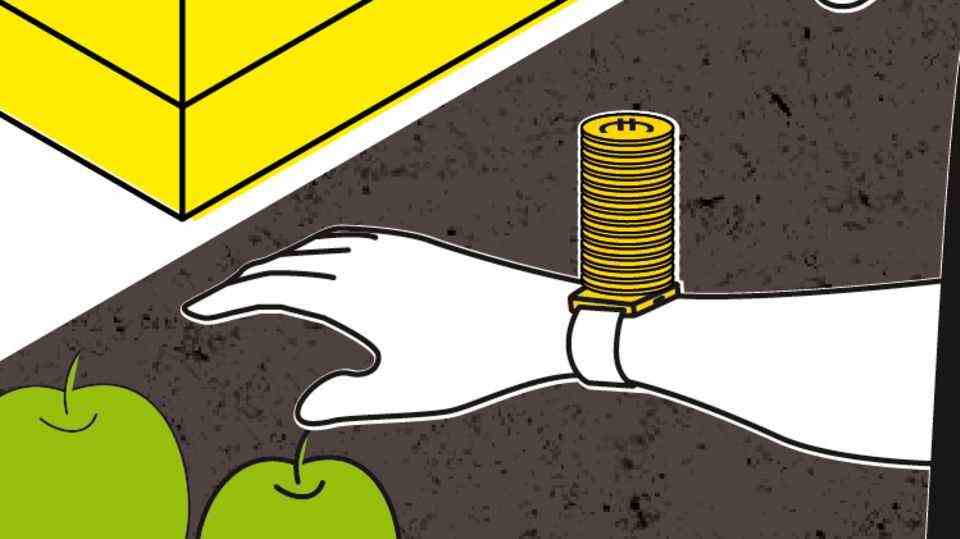Cash
Savings stocking instead of credit card: Argentina’s unusual love of the US dollar
In September 2019, one US dollar was still for sale at 62 pesos at the exchange office in Buenos Aires. Two years later the rate has officially risen to 105 pesos.
© Natacha Pisarenko / DPA
In hardly any other country in the world do citizens have as much foreign cash as in Argentina. South Americans have more US dollars in cash per capita than the US population. Where does this love for money come from?
In Argentina, the following still applies: only cash is true! An electrician was recently amazed when he pulled new cable ducts while renovating an apartment in Buenos Aires. Behind the wall he discovered several rolls of dollar bills – old banknotes that a previous owner had hidden there and apparently forgotten.
Instrument against inflation
No other country in the world outside of the United States has as many dollar bills in circulation as Argentina. According to calculations by the economist and former central banker Nicolás Gadano, the Argentines have 200 billion US dollars in cash. That’s 10 percent of all dollar bills in circulation worldwide – and 20 percent of all dollars outside the United States.
“The dollar is an instrument many families use to save, to protect themselves against inflation, to preserve the value of income,” said the sociologist and co-author of the book “The Dollar: The History of an Argentine Currency”, Mariana Luzzi, most recently in an interview. “The dollar also functions as a kind of thermometer for the economic and political realities in Argentina.”
Financial crisis has shaken confidence in banks
Argentines even have more cash dollars per capita than US citizens. Every Argentine has $ 4,400 on his / her edge, while US savers only have an average of $ 3,083 in cash.
The Argentinians’ obsession with cash stems from deep trauma. During the 2001 financial crisis, the government of then President Fernando de la Rúa froze bank deposits. The savers were only allowed to withdraw 250 pesos in cash per week. Since then, the Argentines no longer trust the banks and prefer to hoard their savings at home – in the safe, under the mattress, between books, in the attic.
Internet gives tips on how to store cash safely
There are numerous tips on the Internet on how best to store the notes. The dollars should be stored as cool as possible at temperatures between 10 and 20 degrees and a humidity between 30 and 50 percent, it says, for example. To keep mold away, it is advisable to wrap the bills in aluminum foil and then stow them in airtight plastic bags.
Nevertheless, mishaps occur again and again: sometimes insects attack the savings, sometimes moisture penetrates and softens the banknotes, sometimes the banknotes are so well hidden that the savers cannot find them again. Several companies in Argentina have already specialized in buying up damaged dollar bills at a discount.
Large sums of money attract criminals
However, the large amount of cash in the apartments and houses can also be dangerous. Since criminals can assume that even families with simple backgrounds have at least a few thousand dollars in cash at home, brutal robberies often occur. There are repeated cases of robbers breaking into houses and torturing the residents until they reveal where their dollar savings are hiding.
In Argentina, the ardent love for the dollar is offset by a deep contempt for the national currency. With an inflation rate of over 50 percent, the Argentine peso depreciates so quickly that it is spent as quickly as possible. Only the dollar is suitable for saving. Officially, however, the Argentines are only allowed to purchase US $ 200 per month. That is why the black market is flourishing.
“Cambio, Cambio” echoes along Florida Street in downtown Buenos Aires. Dozens of money changers, so-called “arbolitos” (little trees), try to lure customers into the “cuevas” (caves). Although the business of illegal exchange offices is prohibited, the authorities are not taking any serious action against it. The black market price of the dollar is even in the newspaper every day – it is now almost twice as high as the official exchange rate.
Argentina: the country of financial market experts
The crisis that has been going on for decades has turned the Argentines into real financial market experts. It is not uncommon for the conversation with the taxi driver to continue after a bit of banter about football to a discussion about the International Monetary Fund, inflation, country risk and the dollar price.
But Argentines are not only hoarding enormous dollar treasures under their pillows. According to estimates by the central bank, Argentine savers and companies have invested around 400 billion US dollars abroad – far more than Argentina’s total foreign debt. “We need a capital market that is able to convert savings into investments and financing,” said Central Bank President Miguel Ángel Pesce last. To do this, however, the Argentines would first have to regain confidence in their country’s economy.

You can see in the video: customers of supermarkets can also withdraw or even deposit cash there. How does it work and what should you watch out for?


